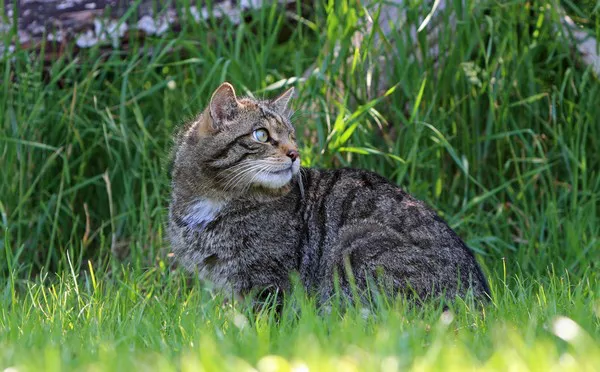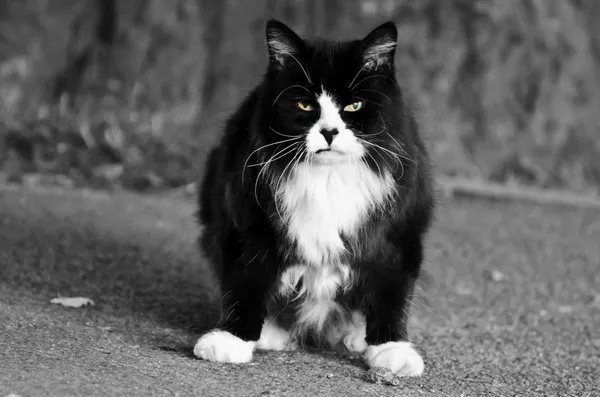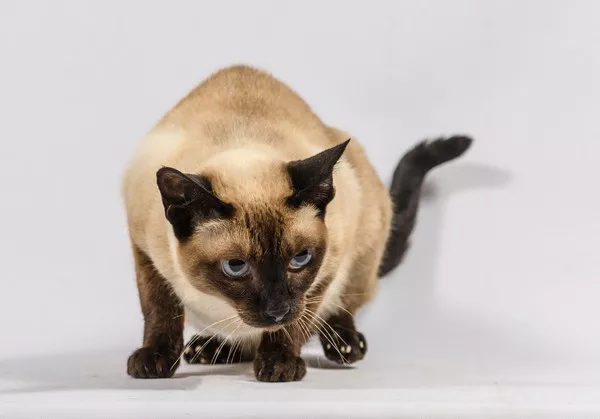Introduction:
Bombay cats, with their striking resemblance to miniature panthers and sleek black coats, often elicit questions about their temperament and whether they are prone to aggression. However, it is important to separate fact from fiction and understand the true nature of these feline companions. In this article, we will debunk the misconception of Bombay cats being aggressive and shed light on their gentle and affectionate personalities.
Temperament and Personality:
Contrary to popular belief, Bombay cats are not inherently aggressive. In fact, they are known for their loving and gentle nature. Bred to be companion animals, Bombay cats exhibit affectionate and friendly behaviors towards their human family members.
Bombays are highly social cats that thrive on human interaction. They form strong bonds with their owners and enjoy being involved in household activities. These cats are often described as attention seekers who love being the center of their family’s attention. Their playful and curious nature adds to their charm, making them delightful companions.
Factors Influencing Behavior:
It is important to understand that a cat’s behavior is influenced by various factors, including genetics, early socialization, environment, and individual personality. While Bombay cats are generally gentle, individual variations in behavior can occur.
Socialization:
Early socialization plays a crucial role in shaping a cat’s behavior. Properly socialized Bombay cats, like any other breed, are more likely to exhibit friendly and well-adjusted temperaments. Early exposure to different people, animals, and environments helps Bombay kittens develop into confident and sociable adults.
Environment and Care:
The environment and care provided to a cat significantly impact its behavior. A loving, nurturing, and stable home environment, along with regular mental and physical stimulation, contributes to a well-rounded and contented Bombay cat. Conversely, a stressful or neglectful environment may lead to behavioral issues, including aggression, in any breed of cat.
Misunderstandings and Mislabeling:
Sometimes, misconceptions about the behavior of certain cat breeds, such as the Bombay, can arise due to misunderstandings or mislabeling. It is important not to generalize the behavior of an entire breed based on the actions of a few individuals. Each cat has its own unique personality, and while certain breed traits may be present, they should not be taken as absolute indicators of behavior.
Addressing Aggressive Behavior:
Like any cat, a Bombay cat may display signs of aggression if it feels threatened, scared, or provoked. It is important to understand and respect a cat’s boundaries, providing a safe and secure environment where they feel comfortable. Proper training, positive reinforcement, and interactive play sessions can help redirect any unwanted behaviors.
Consulting a Professional:
If you are experiencing behavioral issues with your Bombay cat or have concerns about aggression, it is advisable to consult a professional, such as a veterinarian or animal behaviorist. They can provide guidance, behavioral modification techniques, and strategies tailored to your specific situation.
Conclusion:
Bombay cats are not inherently aggressive but rather known for their loving and gentle nature. With proper socialization, a nurturing environment, and understanding their individual needs, Bombay cats can thrive as affectionate and devoted companions. It is important to dispel the myth of aggression associated with this breed and appreciate the unique personalities and traits that make Bombay cats cherished members of their human families.

























